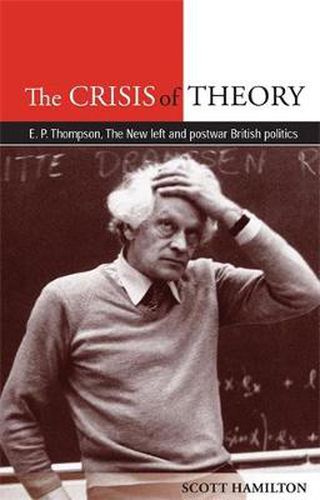Readings Newsletter
Become a Readings Member to make your shopping experience even easier.
Sign in or sign up for free!
You’re not far away from qualifying for FREE standard shipping within Australia
You’ve qualified for FREE standard shipping within Australia
The cart is loading…






The crisis of theory tells the story of the political and intellectual adventures of E. P. Thompson, one of Britain’s foremost twentieth-century thinkers. Drawing on extraordinary new unpublished documents, Scott Hamilton shows that all of Thompson’s work, from his acclaimed histories to his voluminous political writings to his little-noticed poetry, was inspired by the same passionate and idiosyncratic vision of the world. Hamilton shows the connection between Thompson’s famously ferocious attack on the ‘Stalinism in theory’ of Louis Althusser and his assaults on positivist social science in books like The making of the English working class, and he produces previously unseen evidence to show that Thompson’s hostility to both left and right-wing forms of authoritarianism was rooted in first-hand experience of violent political repression. This book will appeal to scholars and general readers with an interest in left-wing politics and theory, British society, twentieth-century history, modernist poetry, and the philosophy of history.
$9.00 standard shipping within Australia
FREE standard shipping within Australia for orders over $100.00
Express & International shipping calculated at checkout
The crisis of theory tells the story of the political and intellectual adventures of E. P. Thompson, one of Britain’s foremost twentieth-century thinkers. Drawing on extraordinary new unpublished documents, Scott Hamilton shows that all of Thompson’s work, from his acclaimed histories to his voluminous political writings to his little-noticed poetry, was inspired by the same passionate and idiosyncratic vision of the world. Hamilton shows the connection between Thompson’s famously ferocious attack on the ‘Stalinism in theory’ of Louis Althusser and his assaults on positivist social science in books like The making of the English working class, and he produces previously unseen evidence to show that Thompson’s hostility to both left and right-wing forms of authoritarianism was rooted in first-hand experience of violent political repression. This book will appeal to scholars and general readers with an interest in left-wing politics and theory, British society, twentieth-century history, modernist poetry, and the philosophy of history.